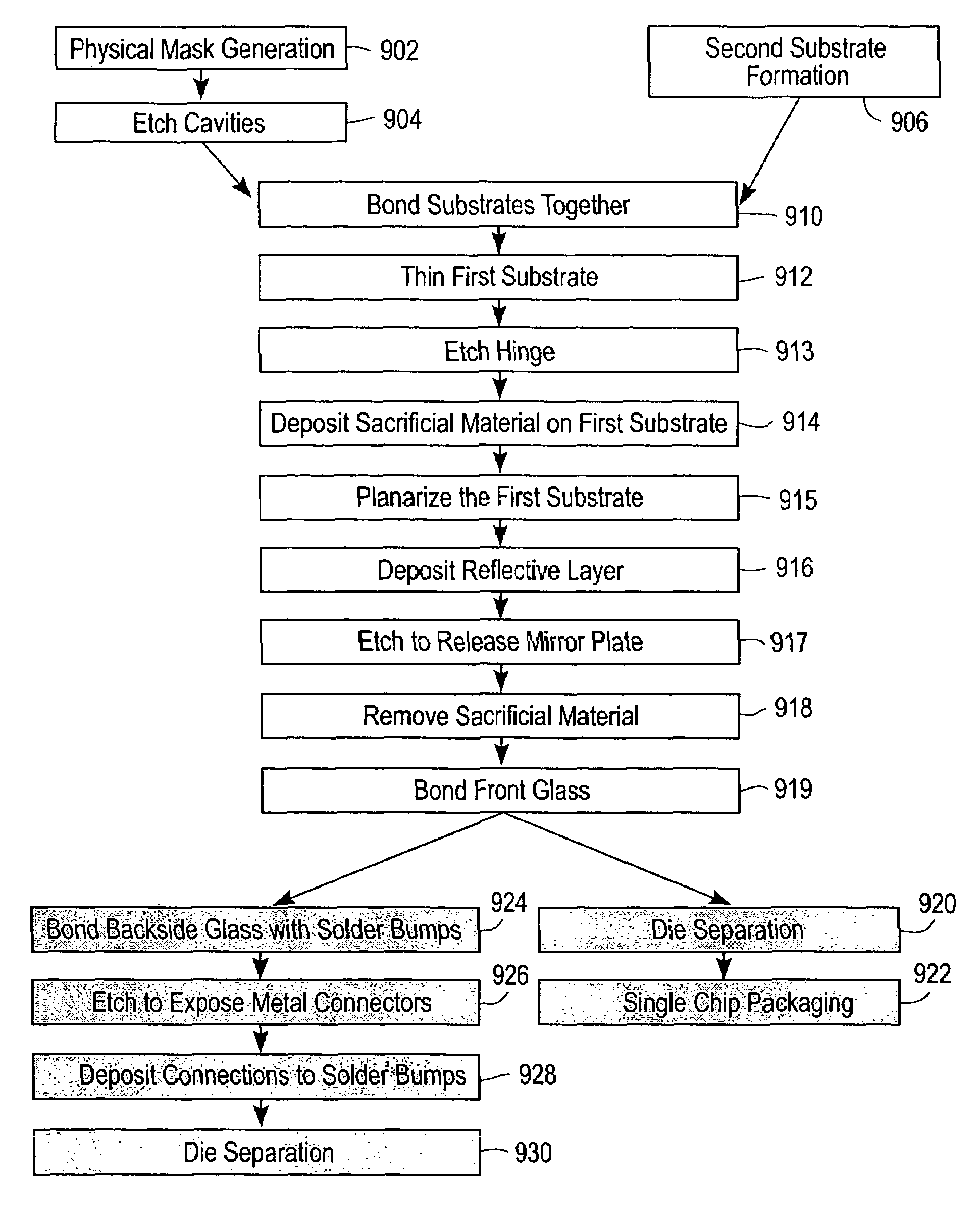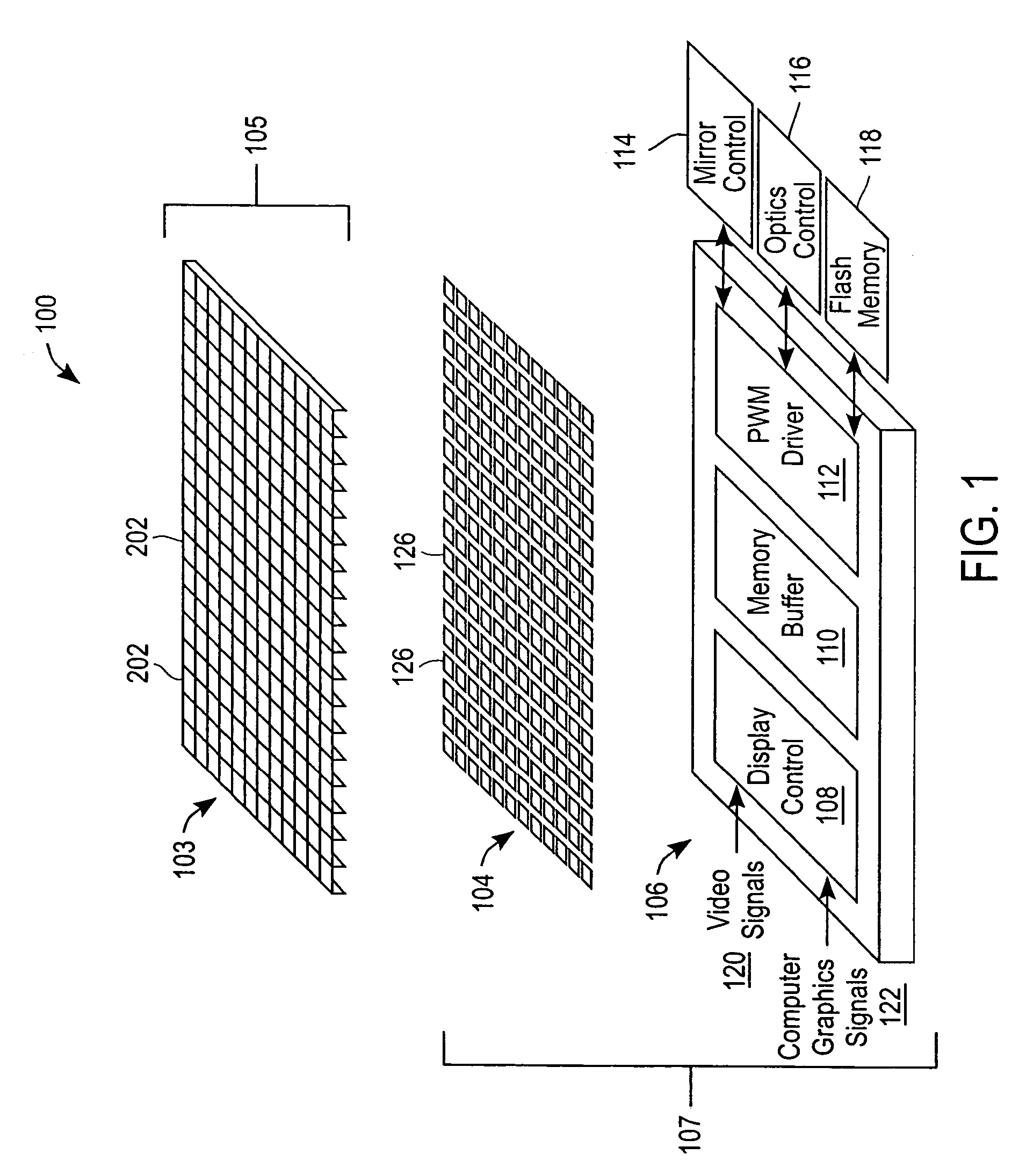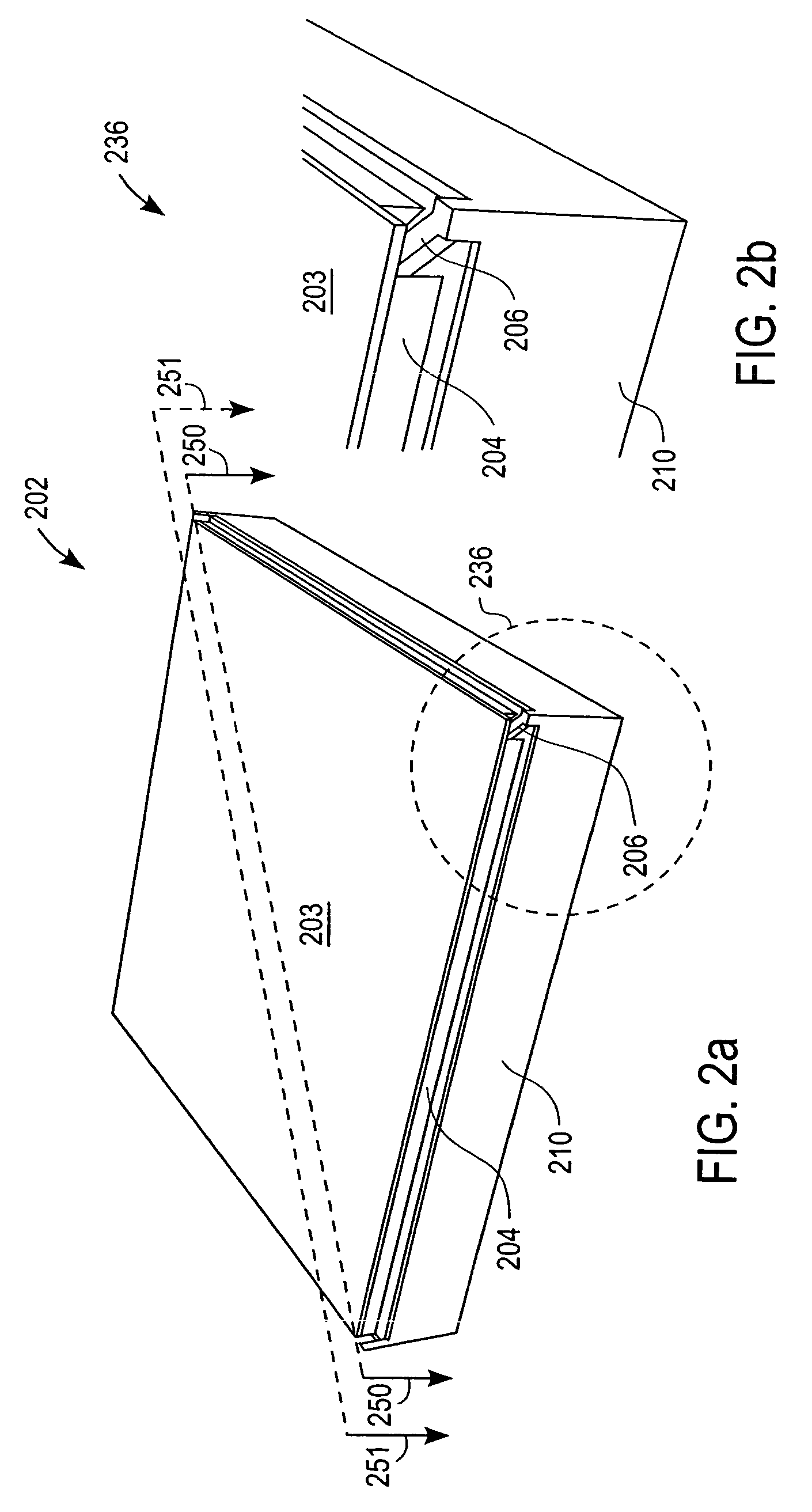Fabrication of a high fill ratio reflective spatial light modulator with hidden hinge
a spatial light modulator and high fill ratio technology, applied in the field of spatial light modulators, can solve the problems of limited gap between the mirror and the support wall, achieve high optical efficiency and performance, produce high-quality images reliably and cost-effectively, and facilitate manufacturing.
- Summary
- Abstract
- Description
- Claims
- Application Information
AI Technical Summary
Benefits of technology
Problems solved by technology
Method used
Image
Examples
Embodiment Construction
[0042]The reflective spatial light modulator (“SLM”) 100 has an array 103 of deflectable mirrors 202. Individual mirrors 202 can be selectively deflected by applying a voltage bias between that mirror 202 and a corresponding electrode 126. The deflection of each mirror 202 controls light reflected from a light source to a video display. Thus, controlling the deflection of a mirror 202 allows light striking that mirror 202 to be reflected in a selected direction, and thereby allows control of the appearance of a pixel in the video display.
Spatial Light Modulator Overview:
[0043]FIG. 1 is a schematic diagram that illustrates the general architecture of an SLM 100 according to one embodiment of the invention. The illustrated embodiment has three layers. The first layer is a mirror array 103 that has a plurality of deflectable micro mirrors 202. In one preferred embodiment, the micro mirror array 103 is fabricated from a first substrate 105 that, upon completion of fabrication, is a sing...
PUM
| Property | Measurement | Unit |
|---|---|---|
| thickness | aaaaa | aaaaa |
| thickness | aaaaa | aaaaa |
| thickness | aaaaa | aaaaa |
Abstract
Description
Claims
Application Information
 Login to View More
Login to View More - R&D
- Intellectual Property
- Life Sciences
- Materials
- Tech Scout
- Unparalleled Data Quality
- Higher Quality Content
- 60% Fewer Hallucinations
Browse by: Latest US Patents, China's latest patents, Technical Efficacy Thesaurus, Application Domain, Technology Topic, Popular Technical Reports.
© 2025 PatSnap. All rights reserved.Legal|Privacy policy|Modern Slavery Act Transparency Statement|Sitemap|About US| Contact US: help@patsnap.com



